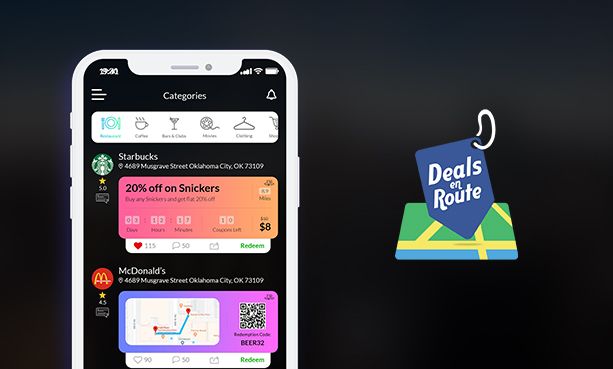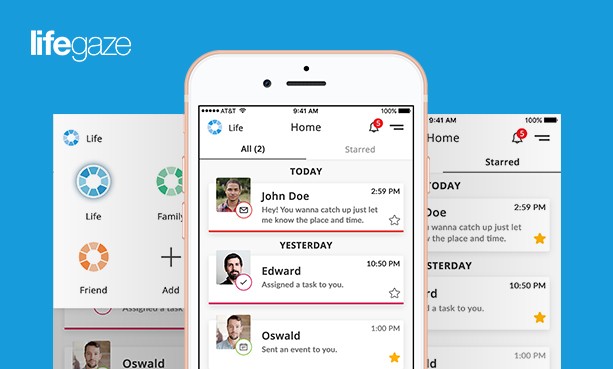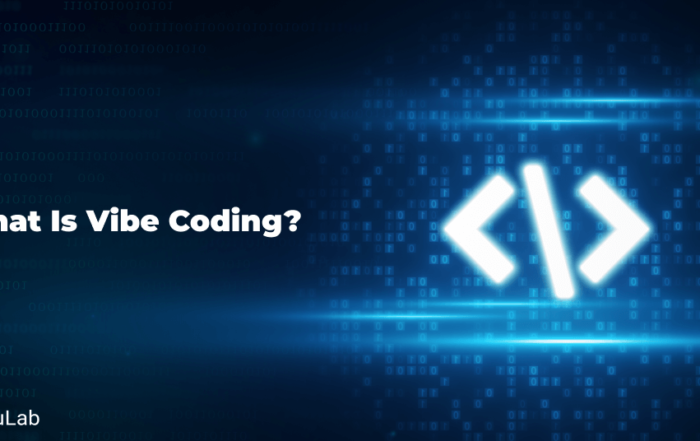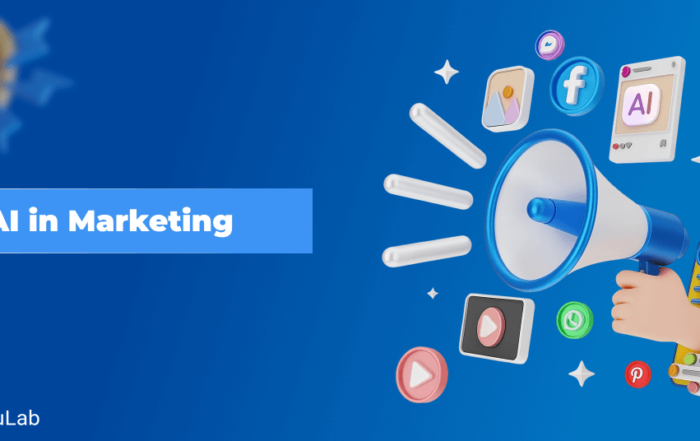AngularJS App Development Company
SoluLab is a trusted brand for web development and app development in Angular JS. Connect with out experienced team. Hire Angular JS developers and discuss your idea!
Let’s connect
AngularJS Mobile App Development
AngularJS is an effective client-side web application development innovation that adds to your HTML, CSS, and JavaScript and accelerates the application’s performance. It is an open source Javascript based basic system for dynamic web applications. It is produced by Google. It is utilized to create stable SPA (Single Page Applications) that have CRUD (Create, Read, Update and Delete) operations.
HTML is ideal for static archives however it comes up short where dynamic perspectives are required in web-applications. AngularJS gives HTML extra credits to make it more receptive to client activities. It makes RIA – Rich Internet front end Applications.
SoluLab is a prominent AngularJS web & mobile app development company acclaimed to offering best-in-class solutions based on this open source web development framework. We have a track record of developing fully functional web & mobile applications that are secure and easy to maintain. Further, our development team chooses to extend its development realm in AngularJS web & mobile app development domain and has cleared all the milestones by accomplishing the client’s expectations each time by offering them the world-class AngularJS development services.
At SoluLab, we have built up a few straightforward and adaptable applications with modern highlights taking into account complex business requirements for assorted industry verticals. Our group of Angular.js developers makes utilization of forefront devices and most recent advances to offer best AngularJS development services.
How about we examine a couple of its key highlights
-
A module is a gathering of mandates, administrations, channels, controllers, and arrangement. Modules are utilized to isolate rationales for instance it keeps administrations, controllers, application and so on partitioned from each other and keeps the code clean.
-
AngularJS orders are a blend of AngularJS layout check ups (HTML properties or components or CSS classes) and supporting JavaScript code. AngularJS mandates broaden the HTML vocabulary – they include new conduct and control the properties of HTML components in intriguing ways. AngularJS has some work in orders like ng-application, ng-controller, ng-rehash, and ng-display. ng is the center module in rakish. At the point when a precise application is begun, this module is stacked as a matter of course. You can likewise make your own custom mandates.
-
AngularJS layouts are plain old HTML formats. They contain Angular particular components. AngularJS utilizes these layouts to indicate data from the model and controller.
-
The extension is utilized to connect the controllers and the perspectives. It is the paste amongst controllers and the perspectives. It acts like a setting to assess precise articulations. Every order makes and deals with its own extension. The extension accompanies extra operations which can be exceptionally valuable in building application.
-
Articulations tie application information to html. They are unadulterated Javascript code scraps composed inside twofold supports, for example, {{expression}}. They carry on like ng-tie mandates.
-
Information Bindings highlight is the most imperative one for AngularJS. It spares you from composing standard code – the code which is utilized as a part of many spots with next to zero modification. Designers don't have to control the DOM components and ascribes physically to reflect show changes. AngularJS accommodates two way information official and one way information authoritative. Two way information restricting synchronizes the information amongst model and view. Any adjustment in the model will refresh the view and the other way around. ng-display order is utilized for two-way information official. AngularJS 1.3 presented one way information official.
-
Channels are utilized to design information before showing it to the client. They are utilized as a part of view layouts, controllers, administrations and mandates. AngularJS has worked in channels like Date, Currency, Number, Uppercase, Lowercase, and OrderBy. You can likewise make your own channels.
-
A service organizes and shares code across your app. A service can be injected into controllers, directives and filters etc. AngularJS offers various built-in services like $resource, $provide, $window, $parse and $http.
Why should you use AngularJS?
AngularJS allows you to extend HTML vocabulary to create new UI widgets/components. It provides a powerful two-way data binding mechanism which binds data to HTML elements by using the scope. The application written in AngularJS is cross-browser compliant. AngularJS automatically handles Javascript code which is appropriate for each browser. It is customizable therefore you can create your own custom components like directives, services etc. Developers using AngularJS are able to write client-side applications in a clean MVC (Model View Controller) way. Code reusability is one of AngularJS’s big advantage. It allows you to write code which can be reused. It supports animations. It supports form validation. It is unit testable.
There is no need to register callbacks. Your AngularJS code is simple and easy to debug. No initialization code needed so you can bootstrap your app easily by using services that are auto-injected in your application.
AngularJS development can be done with the following IDEs: SublimeText, TextMate, WebStorm, Eclipse, VisualStudio 2012, 2013, 2015 or higher. AngularJS supports scalability, maintainability and has modularization at its core. It is the best framework for web applications.
Benefits of AngularJS
Why SoluLab the best option to Hire Angular JS Developers for your next Project?
FAQs
By providing a secure and tamper-proof method for recording and tracking digital transactions, blockchain technology is revolutionising industries all over the world. It has the potential to create new opportunities for growth and innovation as well as to upend conventional business models. The future of digital transactions is blockchain. It will eliminate the possibility of cyberattacks and fraud, making the app 100 times more secure if it is incorporated into its development.
Blockchain applications extend far beyond Bitcoin and cryptocurrency. Technology is affecting various industries in ways ranging from how contracts are enforced to making government work more efficiently. It is able to increase transparency and fairness while also saving businesses time and money.
The most important applications of a blockchain are the following:
- Money transfer
- Smart contracts
- Internet of Things (IoT)
- Personal identity security
- Healthcare
- Logistics
- Non-fungible tokens (NFTs)
- Government
- Media
The trustworthiness, security, transparency, and traceability of data shared across a business network are all improved by blockchain, as are cost savings and new efficiencies. A shared, immutable ledger is used in blockchain for business, and only members with permission can access it.
To learn more about how blockchain can be used in your industry, read about how it provides these advantages.
- Greater openness.
- Improved security.
- Enhanced traceability.
- increased speed and effectiveness.
- Reduced expenses.
- Applications of blockchain across industries.
The distributed ledger technology used by blockchain ensures that all transactions and data are recorded consistently across all locations. Full transparency is provided since all network users with authorization access see the same data concurrently. Every transaction is permanently recorded and has a time and date stamp.
Information is essential to business. The faster and more precise it is received, the better. Blockchain is the best technology for delivering that information because it offers instant, shareable, and fully transparent data that is recorded on an immutable ledger and accessible only by members of a permissioned network.
Blockchain is a decentralised, immutable database that makes tracking assets and recording transactions in a corporate network easier. An asset may be physical (such as a home, car, money, or land) or intangible (intellectual property, patents, copyrights, branding). In a blockchain network, practically anything of value may be recorded and traded, lowering risk and increasing efficiency for all parties.
Simply, everyone owns blockchain technology, even though no one owns it. This is one of the distinguishing characteristics of blockchain technology, and because of the shared accountability and ownership, blockchains are extremely safe and immutable.
Blockchain offers immutability in the chain of records or blocks before starting the stages of blockchain development. The blockchain’s blocks hold documents, transactions, and related information. Moreover, hashes are used to pair the blocks with one another. Before beginning blockchain development, it is crucial to have a thorough understanding of the fundamentals.
The necessity of creating a blockchain from the ground up is the next issue related to blockchain development. Depending on the project’s complexity, a blockchain development process can take months or even years. On the other hand, forking can be used to develop blockchain solutions using open-source blockchain platforms currently on the market.
The steps involved in creating a blockchain application are shown below in chronological order:
- Ideation
- Picking of Blockchain Platform
- Identification of Other Technology Stacks for the Application:
- creation of prototype or proof-of-concept
- visual and technical designs
- Creation of Blockchain Apps
- Deployment, Upgrading, and Maintenance of Blockchain Apps
Blockchain platforms are entities with complex and powerful scripting languages that may be used to generate and administer a variety of Web3 tasks, such as but not limited to NFTs, the beginning and completion of transactions, and the development of smart contracts.
In reality, smart contracts are regarded as the first application of a blockchain platform other than a cryptocurrency, and that application was Ethereum.
As is the case with several cryptocurrencies, many blockchain platforms are created by and supported by nonprofit foundations.
Our blockchain developers, who work for a prominent blockchain development business, have experience working on the:
- Ethereum
- Hyperledger Fabric
- Hyperledger Sawtooth
- Hyperledger Indy
- Tron
- Stellar
- EOS
- Corda
The distributed ledger and its immutable record of transactions are available to all network users. With this shared ledger, transactions are only recorded once, preventing the redundant work that is typical of conventional commercial networks.
The Foundational Elements of a Blockchain Network:
- Distributed Ledger.
- Peer-to-peer network – P2P.
- Consensus Mechanism.
- Cryptography.
- Virtual Machine.
Solulab is a certified blockchain development company building industry-disrupting decentralized education platforms and applications that operate autonomously without any middlemen interference. Choose Solulab for launching ICOs and working with ahead of the curve advanced technologies.
Top-Notch Assurance: We excel at developing a top-notch blockchain-based educational application without compromising quality.
Improved Security and Privacy: We offer enhanced security with an unalterable record of transactions with end-to-end encryption, which shuts out fraud and unauthorized activity.
Transparent Business Model: We are transparent in all our operations and encourage clients to be participative.
Configuring Automation: We use the internet of things (IoT) to enhance and configure the interoperability of smart education.
Client-Centered: We respect all your ideas, concepts and requirements for your business and change your dreams into reality.
24 x 7 Support: Our blockchain specialists provide you with 24X7 support and maintenance. Train & support migration of your system admin and employees to use the blockchain platform for instant data sharing.
Reduce Data Storage: Our amazon and multitude of cloud service choices provide you with serverless accessibility.
The following tech stack is considered ideal for the development of blockchain education platforms.
Machine Learning: Machine learning integration is helpful in improving the security of the distributed ledger of the blockchain. Also, the computation power of ML is used in the reduction of time taken to find the golden nonce and make the data sharing routes better.
Ethereum: Enables developers to build and deploy decentralized applications.
Hyperledger: A shared ledger that utilizes cryptography and supports smart contracts.
Solidity: A statically-typed programming language designed for developing smart contracts.
Truffle: Act as a developer environment and testing framework for blockchain technology.
R3 Corda: Open source blockchain designed specifically to meet the demands of modern-day businesses.
Ripple: Provides one frictionless experience for sending and receiving money globally.
Quorum: Platform that addresses specific challenges to blockchain technology adoption within the financial industry and beyond.
IOTA: Open-source distributed ledger built to power the Machine Economy through fee-less microtransactions and data integrity.
Blockchain technology has the potential to significantly benefit education by providing high security, low cost, improving student assessments, better control of data access, increasing accountability and transparency, identity authentication, increasing trust, and improving the efficiency of student records, management, assisting learners in making career selections, and increasing learner involvement. The use of blockchain ensures the confidentiality and privacy of data and transactions exchanged between the intended parties.
One of the great features and benefits of blockchain is restricting/controlling the access of the stored records. Educational records include transcripts, diplomas, or personal students/teachers’ records. Additionally, the blockchain assures the authenticity of the digital certificates as well as the identity of users.
Furthermore, the education field can greatly benefit from using the blockchain to reduce costs. The cost includes storage costs, associated transaction costs, and the cost of managing and maintaining the educational records. Moreover, enhancing accountability and transparency are two advantages achieved when using blockchain technology. Storing all educational or school records in one place, where they can be easily accessible, will increase the accountability and transparency of using such records.
Blockchain adoption in education could assist increase the efficiency of the school ecosystem and optimise the utilisation of people and physical resources. Concerns like data privacy, cost, scalability, and interoperability with older systems will have to be addressed in the process. It is well worth the money since it will help users in a more secure, transparent, collaborative, creative, and future-ready educational system that can handle increasing enrolment.
Blockchain technology can provide a great framework for managing student records from ranging day-to-day information like assignments, attendance, and extracurricular activities to information about degrees and universities they’ve attended. It would be a secure system that ensured the integrity of educational records. Similarly, information on teachers can be carefully preserved, allowing an educational institution to keep track of their performance. The blockchain ledger would give a time-stamped and tamper-proof record of faculty performance — attendance, student evaluations, number of students choosing electives, research output, and publications. These recordings could be linked to faculty evaluation systems, resulting in increased accountability. A blockchain ecosystem can potentially be utilised to create a scholarship system that rewards students for maintaining consistency and academic performance.
We at SoluLab make use of distributed ledger technology or DLT and smart contracts for the purpose of implementing blockchain for mortgages. It would be great to let us know your specific requirements, and we can work accordingly.
You should choose SoluLab for blockchain development in the mortgage industry because of the following.
- SoluLab has an outstanding of highly proficient blockchain developers
- Hands-on experience with blockchain development for the mortgage industry
- Our team is up-to-date with the latest tools, technologies, and trends in the industry
- Affordable pricing structure
- Quick turnaround time
The major benefits of blockchain development for the mortgage industry are listed below.
- Readily speed up the transaction time
- Make settlement more rapid and hassle-free
- More accurate keeping of records
- Buyers’ cost is lowered
- Verification of the chain of title becomes easier
- Implementation of smart contracts
Blockchain technology can be used for mortgages to give them a complete makeover. It can increase the efficiency of the whole process, making it easier and more convenient for all the parties involved. With the help of blockchain mortgages, the data or information needed to assess as well as approve the loan application would be stored in a highly secure manner on a network where these ledgers would be automatically updated and that too in real-time.
We offer private blockchain, blockchain technology consulting, ICO, IEO and STO, dApps development service, blockchain with IoT, and Blockchain in AI. We work in almost all industry verticals including finance, healthcare, education, government, media, publication, real estate and supply chain.
Yes, all our blockchain developers will work as per your timezone. We make sure to provide our clients with a hassle-free experience. Hence, our whole team of blockchain is committed to working as per the needs and demands of the client.
Yes, we do provide remote blockchain developers for hiring. Communication is very easy and smooth as all our developers are flexible in working as per the client’s timezone.
You will never regret hiring developers form SoluLab. Our whole team is equipped with developers who ace in their programming skills and are updated with all the tools related to blockchain technology to provide a smooth and efficiently running development project for your company.
Typically, blockchain engineers charge between $81 and $100 per hour. As the need for blockchain coders grows, the hourly rate they demand may rise along with it.
Augmented reality app development cost depends upon a number of factors such as the features, functionalities, type of app, type of content, the complexity of the app, and software licenses. On average, the cost of AR app development can range from a few thousand dollars to about 300,000 dollars. It is better to compare a few AR app development companies and settle for the one that best suits all requirements.
The difference between augmented reality or AR and virtual reality or VR lies in the device they need and the overall experience they offer. Let us understand the difference between AR and VR below.
- Augmented reality makes use of a setting like the real world, while virtual reality happens to be entirely virtual.
- Augmented reality can be accessed with a smartphone, tablet, or other devices, but virtual reality necessarily needs a headset device.
- Users of augmented reality are able to control their presence in the real-world setting, whereas the users of virtual reality cannot control themselves and are controlled by the system.
- Augmented reality enhances both the real world as well as the virtual world, while virtual reality enhances only a fictional reality.
Augmented reality or AR begins with a device equipped with a camera like a tablet, smartphone, or smart glasses that is loaded with augmented reality software. At the time when a user points at the device and looks at an object, the augmented reality software identifies it with the help of computer vision technology, which helps analyze the video stream.
Augmented reality or AR apps work by using the device where the AR app exists to appropriately blend the digital content into the real world. The users get the freedom to choose a feature and capture photos & videos along with all the fun elements. They can also add a wide array of available virtual items.
Augmented reality or AR refers to a highly interactive experience of the environment of the real world. In augmented reality, the objects that lie in the real world are readily enhanced by perceptual information generated by computers. The perception is many times generated across many sensory modalities, which include auditory, visual, haptic, olfactory, and somatosensory.
To state in simpler terms, AR happens to be an enhanced version of the real world achieved via using different digital visual elements, sound, or other sensory stimuli. AR has become extremely popular over the past few years and, at present, happens to be a growing trend among different organizations involved in business applications and mobile computing, to be specific.
Solulab is a perfect fit in blockchain development for government sector for several reasons. You can transform your business digitally and avoid any sort of fraudulent activities. Increase accountability by growing smart with technology and increasing accountablity.
You can also make use of expert advice to make use of resources optimally which in turn will also save your time and cost. Efficiency in work is accomplished with transparency in communication.
As blockchain and cryptocurrencies are still in their infancy, finding the proper people who can produce the result on time isn’t easy. According to Codementor.io, developers charge hourly rates: average and median: – hourly rates range from $81 to $100 on average; hourly rates on the median range from $61 to $80. Therefore, using offshore or nearshore software development services is the most excellent option to reduce the cost of blockchain deployment and development. Software outsourcing is another name for this procedure.
For entities transacting with one another, blockchain for business is worthwhile. Permissioned users can access the same information simultaneously using distributed ledger technology, improving efficiency, building trust, and reducing friction. Blockchain also enables a solution’s size and scale to be quickly adjusted, and many answers can be customized to do many jobs across industries. The benefits of blockchain for business are based on four unique characteristics of the technology. Business leaders will learn how blockchain technology may aid in the development of more efficient procedures and innovative financial models. The use cases and ideas in this practical guide are industry-specific.
Blockchain storage stores data in a decentralized network that uses idle, hard disc space from people worldwide. The decentralized architecture is a viable alternative to centralized cloud storage and can address many issues that plague centralized systems. The purpose of a blockchain is to allow the recording and distributing of digital information to all participants but never editing. One can use a blockchain to store a variety of data (election votes, product inventories, state identifications, home deeds, and so on); Bitcoin only uses it to create a transparent log of payments.
Yes, we do sign NDA to avoid breach of privacy and security.
Blockchain applications in retail will provide four major benefits: lower costs, efficient payments, improved transparency, and enhanced security. These will be attained through the use of various core technologies that will work in tandem and/or alongside one another. Cryptocurrencies, distributed ledgers, and smart business deals will significantly accelerate the completion of transactions and deals, eliminating massive layers of bureaucracy and lowering expenses.
It’s not easy to respond to this question right away. Because blockchain and cryptocurrencies are still in their infancy, it is difficult to find the proper people who can produce the end result on time. Codementor.io claims that the developers charge two types of hourly rates: average and median:
– Hourly rates range from $81 to $100 on average.
– Hourly rates range from $61 to $80 on average.
Retailers benefit from blockchain technology in four ways: lower costs, quicker payments, increased transparency, and improved security. Costs are lowered as a result of the decentralized nature of transaction automation and application interoperability, which results in the eradication of administration. Rapid payments are possible because blockchains do not require a centralized infrastructure. No system is immune to external breaches of its security standards; but, blockchain’s distributed nature gives an unprecedented level of confidence. Transparency is provided through blockchain’s immutability and public availability.
A retail blockchain is a universal word for unsettling technology used in the retail sector to store digital businesses cryptographically on a distributed ledger. A blockchain is a distributed database that is shared among computer network nodes. Blockchains are well known for their critical function in cryptocurrency systems such as Bitcoin in keeping a secure and decentralized record of transactions. The blockchain’s innovation is that it ensures the accuracy and security of a data record.
A Chatbot is nothing but a computer program that stimulates and processes written or spoken human conversation. This, in turn, allows humans to communicate and interact with digital devices in a similar manner as they interact with a real person. Chatbots are software applications like rudimentary programs that answer human queries like a live agent. The interaction between chatbots and humans is usually an online chat conducted via text or text-to-speech. The chatbot software helps automate customer conversations and communicate with them via messaging platforms.
You should use chatbot development services from SoluLab since it is one of the most trusted and reputed names in this field. We at SoluLab, have a team of proficient chatbot developers who are proficient in delivering high-end solutions without giving anyone even a single chance to complain. Moreover, SoluLab’s chatbot development services have a very quick turnaround time, but that too at affordable rates. Request a free consultation from the team of SoluLab.
The chatbot users can simply be anyone, irrespective of who they are. The users can be potential leads, existing customers, new customers, and almost anyone. Chatbots prove to be extremely effective in providing proactive services to users.
Chatbots play a significant role in helping businesses. Let us discuss a few of the major ones below.
- Chatbots help provide a very quick response to users
- They help create fantastic customer engagement
- The bots allow businesses to provide round the clock support services
- Chatbots help in reducing the overall cost of customer service
- Businesses can make use of chatbots to take care of a range of uncomplicated tasks
- Chatbots help reduce human error, especially in repetitive and boring tasks
Now, it can be understood how chatbots help businesses.
Yes, the chatbots developed by us are multilingual in nature, thereby facilitating easy communication and interaction regardless of the region to which the users belong. Multilingual chatbots are extremely effective in promoting seamless interaction.
Yes, of course! We sign a non-disclosure agreement or NDA at the time of starting the project. You can be a hundred percent sure that every bit of your project is safe and secure with us. You can freely discuss your project without any kind of hesitation.
Yes, you will have the authority over the hired full stack developers. Once the project and payment are finalized, SoluLab will assign you a team to work on your project on which you will be having the authority.
The cost to hire remote full stack developers tends to vary from one project to another. The cost depends upon the project’s features & functionalities, total work hours required, the complexity of the project, and a number of other factors. On average, the hourly rate of full stack developers ranges between 40-80 dollars per hour. Discuss your entire project requirements with us to get the best quote from us.
Yes, why not? You can certainly hire remote full stack developers for project-based tasks. You can request a free consultation from us, where you are free to discuss your complete project requirements with our team and hire remote full stack developers accordingly.
You should hire remote full stack developers from SoluLab since they are undoubtedly one of the best of the lot. SoluLab’s developers have a sheer level of dedication to work combined with several years of experience in this field, making them simply flawless.
SoluLab’s full stack developers are adequately trained and possess the necessary skill set as well as the expertise to help them stand out from the other developers. You can check out SoluLab’s full stack developers’ portfolio to have a better idea about how we are different from others.
Hyperledger Composer is a tool of open development and a framework that helps to create smart contracts and blockchain applications on time to get solutions to any business-related problems. Hyperledger can be considered as a community that helps and involves in open industrial blockchain development. Hyperledger developers build Apps for multiple industries, deliver exact designs, identify which project will fit one’s business, etc. Smart contracts which are the chain codes are written by the developers of Hyperledger that ensures robustness and complete security. The objective of the Hyperledger project is to build a connection and collaborate with the cross-country industries by developing blockchains.
The financial industry is quite large, and hence the types of financial apps that can be developed are also many. To give a better idea about the same, here is a small list of the major types of financial apps that can be developed.
- Banking apps
- Mobile payment apps or simply payments app
- Consumer finance apps
- Investment apps
- Insurance apps
- Personal finance apps
- Lending apps
- Regulatory or RegTech apps
In addition to the types of financial apps mentioned above, there can be some other customized financial apps that can be developed on demand. The features and functionalities of such customized financial apps need to be discussed with the app development company prior to their development.
The cost of hiring a financial app development company depends on a number of factors that are listed below.
- Functionalities and features of the financial app
- UI and UX features
- Animations and design of the app to be created
- Total hours of development
- Experience and expertise of the financial app development company
- Location of the company
As a rough estimate, the cost to hire a financial app development company ranges between 15,000 to 35,000 USD. It would be ideal to compare a few companies and select the one that is most suitable in all aspects.
It is always recommended to call in for the help of experts at the time of developing financial apps. Therefore, all fintech startups should always look forward to hiring a financial app developer to create their app. It is because of the fact that the financial app developers are experts in their field and possess the required skill set as well as expertise to create superior apps.
In addition to this, the developers are adequately trained and have several years of experience in building financial apps. Therefore, they know what is best and play a significant role in creating financial apps with the right features as well as functionalities, thereby providing the users with a seamless experience.
When it comes to building a financial mobile app, Python happens to be the most preferred choice. Python is perfectly suitable for almost all types of financial apps since it works quite smoothly. The language can very easily take over risk management, asset management, investment concerns, hedge funds management, and a wide array of other financial services.
The app developers make use of Python language to build cross-platform web systems, desktop, as well as mobile applications. At the same time, Python is also helpful in building Android or desktop applications from scratch. The language is popular because of its ease of reading and learning. Most financial services businesses make use of Python for the purpose of creating secure and optimized app
Most business workflows depend on multiple other industries and stakeholders. To any business-related problems, it becomes easier to find a solution if they are connected through blockchains. Hyperledger, with a decade of expertise in web and mobile development and blockchain solutions, provides suitable Hyperledger frameworks, tools that help to succeed in making next-generation business strategies and bring them on top of the industries.
For Consensus purposes, Hyperledger uses Crash Fault Tolerance (CFT). It achieves consensus for single as well as multiple org systems. The advantage of CFT or Crash Fault Tolerance is that it guarantees to remain undamaged to system failures, like crashes, network partitioning, etc. N nodes in your consensus system help to withstand up to N/2 such crashes.
We, at Solulab, are a great fit as a hyperledger blockchain development company with highly qualified developers, 24/7 support. We are also an award-winning hyperledger blockchain development firm.
Hyperledger development services are cost-effective. They provide developers for 2200 dollars/min 160 hours, mid-level developer and senior for 2500-2700 dollars/ min 160 hours, a senior developer for 3200 dollars/ min 160 hours, Expert developer for 4000 dollars/min 160 hours. Focus on your capabilities by saving costs as the software engineers will provide you with quality output for Website Development and Design, Web applications, etc. The pricing depends on the complexity of the project. The rates range from 15-25 dollars per hour, depending on the experience and skill set of the resource and the work complexity.
AR is a technology that enhances the world around us. It allows us to see things that are not there and interact with them in ways that were never possible before.
Augmented reality can also be used for various purposes
. The most popular use cases of AR include gaming, entertainment and education. In the future we will see AR being used in all areas of life – from shopping to medicine.
AR can be used in various ways. It can be used to overlay virtual 3D objects on top of the real world and make it interactive. AR can also be used for navigating through an unfamiliar area. AR is more than just a gimmick – it’s been proven to have many practical uses in the workplace as well as for entertainment purposes.
Solulab is a specialised IoT application development company and has been doing development work for the past decade, so why go through the recruitment process that is very time-consuming.
We have a team of experts who are skilled in various aspects and you can hire IoT developers that are dedicated and the best in their field and for your projects.
We can help you develop your idea or we can work with you to build an app from scratch. Our team will work closely with you to make sure that the app is as per your requirements and delivers the desired results.
Choosing the right Internet of things development company is not an easy task. There are many factors that need to be considered before you hire IoT developers. But worry not, we have compiled a list of things that you should look for before making any decisions.
Things to Consider –
- Choose a company with proven success in the industry- A IoT software development company with successful projects under their belt will be more knowledgeable and experienced in the IoT industry and can provide better solutions for your business.
- Look for companies who specialise in IoT- It’s important to find a company that specialises in IoT because they will know all about it and will be able to provide better solutions because of this knowledge.
- Check out their portfolio- A good way to judge whether or not a company is worth it.
Solulab has worked with many reputed companies and has a great portfolio and we are doing it since 2014. We are awarded many times as the best blockchain, AI and IoT development company in the industry which you can find on our about us page on the website.
You will only pay for the development of the software and the professional hosting on the cloud. So there are no hidden costs involved.
Don’t worry at all, you will have full control over your project and our assigned manager will coordinate with you and will work accordingly.
Most of the time it is not necessary to have a meeting as it can be discussed over skype, call or email. But sometimes it is important to sit across the table in person.
Hopefully, you will like our work and get the app exactly the same you demanded. Apart from this, when the project is finished we will be happy to provide you with the technical support and maintenance you might need.
Hiring your own software developers can be a smart choice but then you will be going through a lot of processes. You have to go through the recruitment process which is time-consuming and you can’t trust instantly and rely upon someone new but hiring solulab can help you save money and time both. And we have the experts doing these kinds of projects regularly, so you can put trust in us.
We must prepare a project overview and budget so that we can tell you how much time the project may take to be completed within your budget and we also provide 15 days of free service so that you can see how our experts will be working on your project.
The most important thing before contacting us is to know and determine the goals which you need to accomplish. Having a clear vision is necessary when you want to invest in a software application. You don’t want to invest for a month in software without being clear about what you need. We’ll be happy to help you get started, building your project from scratch.
Sooner or later you will need both mobile and web apps, so it is better to create both. Both have their own benefits and flaws. Mobile apps will be more expensive but can provide you with many monitoring, data collecting features that web applications cannot.
Connect with us by email, phone or online form. We’ll have a conversation and talk it over. Just be a little prepared about your project idea, so the meeting can go smooth and we can go ahead with your project.
Determining your business goals, target, features you need, cost analysis preparation, we can help with whatever we can.
In terms of project development, we prepare the front end, back end, UX and graphics.
We’ll be happy to guide our clients in terms of business model creation, risk management and budgeting.
Yes, we follow agile development processes wherein we keep you updated on every process and deliverable, so that there is transparency throughout the development phase.
Yes, these are features that we will be integrating into your OTT app.
You will get numerous benefits such as first 15 days FREE service, money-back guarantee, on-demand resources, daily reporting, client satisfaction, cost-effectiveness, etc.
Yes, this is an important feature that OTT apps should have and we enable that for you. Your apps will be compatible with devices supported by Android, Mac OS, Windows, iOS, smart TVs, and more.
Yes, we do provide multilingual features when developing the app. This will help you cater to a larger geographic audience.
There’s no fixed cost of developing any particular OTT app. The costs would vary based on the features that need to be implemented and the overall UI/UX framework.
You will get numerous benefits such as first 15 days FREE service, money-back guarantee, on-demand resources, daily reporting, client satisfaction, cost-effectiveness, etc.
Yes, and our client testimonials speak volumes about our work. We have a great customer retention record and this has been largely due to our service and support.
We work according to the design plan and if the client is still not satisfied with the product, we are open to iterating it 2-3 times.
Yes, definitely. You will be able to review not just the code, but designs, wireframes and any other project modules during the development phase.
Clickable prototypes for mobile app design projects generally take 2-3 weeks.
We have executed several successful projects that started out as a partially formed idea. This way, we can help you piece together any missing pieces and create an app together.
Currently, we do not provide free logo design services.
The fee depends upon complexity of features and is tailored to fit the business needs.
In native application development, we use default language and IDE for both Android and iOS, i.e. JAVA/Kotlin, with Android Studio for Android and Objective C, Swift with Xcode for iOS. Cross-platform provides a framework in which coding is done once and can be used to deploy the app in iOS, Android, and Windows phone.
You can select your preference but we recommend going for both, as both are increasingly becoming popular.
A quality app with complex features and eye-pleasing UI takes time. A v1.0 app approx takes 4-6 months to build an app. And, if you want it faster, we may assign more resources that fits within the budget and do justice.
Having end-to-end expertise for product development including hardware integration is tough, but we have all required talent inhouse that takes due care of hardware software integration.
Our developers build wearable apps keeping in mind the compatibility and our testers are well skilled to perform a really extensive testing, and identify and address all the bugs (if there) across multiple devices, multiple platforms.
Most of the current modern browsers support PWA (e.g, Firefox, Opera, Chrome, and Samsung’s Android browser, etc. share your requirements to help you better.
Progressive web apps may look like a normal web app, but makes a user feel as if he is using a native app.
All have their own unique advantage. However, native app is better as compared to a responsive or mobile site. And, when it comes to PWA, they load much faster.
PWA allows you to complete an offline page with a brand logo, some product descriptions, and some advanced features. And, customers don’t leave the page even if facing issues with stable internet connection.
There’s no fixed cost of developing any particular wearable app or device. It completely depends upon complexity of UI, UX and features.
You will get numerous benefits such as first 15 days FREE service, money-back guarantee, on-demand resources, daily reporting, client satisfaction, cost-effectiveness, etc.
Yes, we follow agile development processes wherein we keep informing our clients of every process and deliverables so that there is transparency throughout the development phase and our clients can get answers to their queries promptly, if any.
Yes, we are absolutely fine with signing legal contracts when you hire us and that’s how we proceed.
You will get numerous benefits such as first 15 days FREE service, money-back guarantee, on-demand resources, daily reporting, client satisfaction, cost-effectiveness, etc.
There’s no fixed cost of PWA development since it depends upon the complexity of features. However, it is less expensive compared to native or hybrid apps.
Some great examples of progressive web apps include Flipkart Lite, Instagram, Twitter Lite, Forbes, Pinterest, and Starbucks.
We are having an experienced UI/UX team. Once you award the project, Project Manager will send you design requirement document, which you required to fill in and send back, based on the same UI/UX designer will create 2-3 sample of icon and loading screen and sent for your approval after 2-3 revisions we expect this to be finalized. Once this is finalized we will move for designing remaining screen and complete the full application UI.
Yes, project managers will able to communicate in English efficiently. They will be available for phone call as well as Skype call
All the project managers having experience in excess of 7 years and they had been in to the development to start with their career.
We have the expert team of 50+ developers having an average experience of 3+ years. The team strength for each department is as follows:
- iPhone: 15+, Android: 15+, Php: 10+, Wearables & IOT: 10+.
We work 5 days in a week excluding Saturday and Sundays. Our developers will be available for 8 hours a day.
They would be working dedicatedly as your employee. Yes you will have the total access to your team through chat, emails, calls and Skype with daily and weekly reporting.
Dedicated team for your project will be set up quickly to initiate work within few hours of project acquisition.
SoluLab works with the organizations worldwide to provide them with software development and web development solutions and services. Broadly, we provide the following services :
- Mobile Application Development
- iPhone Application Development
- Android App Development
- Cross-Platform App Development
- Web Development
- Web Designing
- Web Redesign and Maintenance
- Offshore Software Development
- Custom Software Development
- Wearable App Development
- IOT Development
- ChatBots Development
SoluLab caters all-embracing categories of wearables available.
- Fitness Trackers – Device or application for monitoring and tracking fitness-related metrics such as distance walked or run, calorie consumption, and in some cases heartbeat and quality of sleep.
- Smart Watches – Wearable computing device that can offer functionalities such as calculations, translation, making calls, messages, and accessing applications available on the smartphone device.
- Head-Mounted Display – Head Mounted Displays present visuals directly for enhanced user experience in industries such as gaming, aviation, medical and engineering.
- Smart Jewelry – Smart jewelry allows activity tracking of a fitness band without silicon strap in a fashionable manner using earrings, necklaces, bracelets, and rings.
- Smart Clothing – Smart clothing also termed as E-textiles, smart garments, smart textiles, or smart fabrics, are fabrics that are embedded with digital components and electronics into them.
- Implantable – Implantable are devices that users carry with them wherever they go as they are implanted under the skin through surgeries in various forms like tattoos, pacemakers or defibrillators.
Breed a whole new range of heavy machinery that works with IoT solution enabled intelligence.
- Product Asset Management – Prevent wastage of inventory, energy and man hours through predictive product asset management that sustains the best health of assets throughout the production cycle.
- Connected Factory – Refresh your factory operations by integrating embedded controller technology consisting of sensors & actuators for remote equipment management, better workforce safety & productivity.
- Performance Optimization – Build an ecosystem of connected machinery that work together in collaborative environment to achieve automated production & quicker production cycles at same or reduced cost levels.
- Safety / Security – Improve employee safety, reduce toxic byproduct production and control several other manufacturing safety issues through sensors that work at levels of the manufacturing unit.
Rethinking energy management, billing and asset maintenance with the internet of things development for Energy.
- Smart Metering – Smart metering that will eliminate manual inaccuracies in billing these rewarding cost savings for customers. Also prepares energy grids for peak time usage through meter data capture.
- Asset Performance Management – Preset conditions based maintenance that help reduce asset wear & tear, energy wastage & improves energy generation, transmission & distribution across vast geographical expanses.
- Energy Distribution – Connect, control & manage complex energy grids from a single console with a network of connected devices. Predict peak times, prepare for downtimes and sustain consistent energy delivery.
Add new revenue channels, deliver superior customer experience & optimize Supply Chain Management with IoT development services for retail.
- Retail Supply Chain – Achieve competitive advantage & magnify profits in the retail supply chain by optimizing customer retail experience at every square foot of brick & mortar stores.
- Smart Shelves – Real-time visibility of stock levels, shelf life of perishable goods & proactive reorder alerts at all levels of manufacturing, distribution & supply.
- Delivery Operations – Redraw point-to-point delivery mechanisms with smart sensors that reduce carriage distance, delivery span & improve fuel efficiency.
- Warehouse Automation – Build automated warehouses that utilize data from embedded sensors in equipment & bins to optimize stock movement & product assembly.
Drive progress, reduce operating costs & master connected cars sphere with the internet of things development for automotive.
- Fleet Management & Monitoring – Optimize fleet management & vehicle monitoring through onboard sensors that collect on-road information about vehicle & driver behavior.
- Connected Vehicles – Build cars of the future that can merge into their immediate surroundings by reading & transmitting data through sensors.
- Remote Vehicle Diagnostics – Empower cognition for vehicles that can remotely diagnose mechanical stats, comfort settings & entertainment consoles.
- Vehicle Tracking – In-vehicle hardware & software embedment that give real-time insights on vehicle movement, location, health stats & other contextual data.
- Safe Driver & No-texting Services – Intelligent in-vehicle systems that spot distracted drivers & take proactive measures to prevent collision, excess speed & misdirection.
Elevate the efficiency of patient monitoring and healthcare provision with IoT development services for healthcare.
- Health & Safety Solutions – Automated clinical workflows that improve patient treatment, reduces manual errors and enhances patient experience.
- Remote Patient Monitoring – Personalized attention to remote patients through smart devices that transmit real-time health information to healthcare professionals.
- Modernize Patient Assistance – Transform the way doctors, patients & vendors communicate & collaborate on treatment discussions, practice and healthcare management.
Definitely. Our experts participate through Skype or other communication media to give you free 30-minutes consultation.
We need a comprehensive overview of your application requirements. We can offer two pricing options, i.e. project or hourly rate basis (whichever you required).
Yes, we are providing graphics design and illustration services. We accept your graphics designs or can create them, according to your project’s requirements.
Yes. We have expertise in writing a functional scope for your project. We also offer a technical breakdown, if you are interested in this aspect of the app development.
Clients own the idea and the source code unless they want us for joint ventures or any other alternatives.
SoluLab can take a full charge to submit your application to the Google Play Store. If you want to sell your app under your company name or your own personal, we also help you with that.
We would love to. Our experts will share their thoughts, advice, and suggestion through Skype, Basecamp or Email. With our app development with Swift, we help you bring the most innovative product in the market.
We just need a comprehensive overview of your app development project to provide a realistic price quote. However, we offer iPhone app development solution for a project or hourly rates. After the consultation process, we want to know if you want to hire full-time iPhone app developers from our side or part-time developers.
Of course. Our iPhone experts have years of experience in writing a completely functional scope for every project.
Additional, we also provide you a technical breakdown, if you want from us.
Yes. If you want to move a step ahead and want app development for iPhone, it’s a time to implement your idea into an iOS app. Success is not solely based on a good idea but also depends on the proper execution.
We take pride to develop a winning application with scalable and easy to maintain code. We have expertise in extending brands into digital platforms by developing a high-quality iOS application that accepted by global users. So, stop thinking more, talk to our iOS engineers for the better solution.
With roughly 1.6 billion people around the world now using a smartphone, the mobile app market has never been more exciting or lucrative, with Android and iOS dominating the smartphone operating systems.
You will have to decide exactly which type of smartphone user you want to target first if you don’t want to build both at the same time.
As they are two very different mobile platforms that require two very different types of language (Android apps are predominantly done in Kotlin and Android Java, while iOS ones are mostly done in Objective C or Swift) and native UI / UX design.
For total market penetration, you eventually want to develop for both iOS and Android.
SoluLab offers a graphics service and works closely with clients who choose this option to determine the color scheme, graphics, and even smaller details such as app icons. We use logos and other supplied branding to ensure the app is entirely branded for your organization or company.
For clients who have an in-house graphics department or prefer to use a 3rd party, we provide a detailed requirements document outlining specific file types and dimensions for every image in the app. Either way, the overall look of the app is left to the client and a SoluLab product specialist will be available throughout the entire process to provide any necessary feedback and direction.
More than simply app developers, SoluLab strives to be a complete solutions provider with pricing tailor-made to individual needs and objectives. A quick conversation will enable our team to find the best possible solution, including the functionality and platforms required, any goals to monetize the app, and other factors determining the overall scope of the project. In turn, we can provide a highly customizable plan fitting almost any budget. Contact us to speak with an SoluLab representative and receive a quote fitting your exact needs.
The SoluLab framework enables our development team to build high-quality apps in a short time frame without sacrificing quality. From receiving the content to making the app available in the AppStore and Google Play for users to download, the development timeline is a seamless process taking as little as one month. While mobile apps requiring a significant amount of content or custom programming may take additional time, a SoluLab specialist will be able to present a customized timeline for your specific project to ensure expectations are met and the finished product is available when needed.
SoluLab provides both mobile apps and mobile websites as a complete mobile app solutions provider. While a mobile website is important to ensure all attendees have access regardless of device, our focus on native apps for iPhones, iPads, and Android devices is a reflection of the significant benefits a mobile app offers over its mobile website counterpart. Mobile apps are more reliable and engaging, with the ability to access content offline and take advantage of features unavailable on a mobile website.
Iconic’s ultimate goal is to make it easier to develop native mobile apps with HTML5, CSS and Javascript. It can save more time in development and costs as well. It offers high performance, easy to access to the functionality and API integration.
Our blockchain team is specialized in a wide array of industry verticals catering to all kinds of startups and enterprises.
We are based in the Los Angeles, New York, Dubai, and India. We have 120+ in-house skilled developers with an average experience of 5+ years.
Yes we do!. You can hire our Dedicated React Native Developers. They shall work according to your time zone (EST/PST/CST/MST), to meet deadlines and achieve milestones. Kindly drop us a line at: [email protected]
Mean stack is an assemblage of three javascript frameworks and a NoSQL. As an award-winning Mean Stack development company, our developers have proven skillsets in Javascript, in the individuals’ frameworks, associated web technologies, and full-stack development in Mean itself about full-stack Javascript.
Of course! our standard approach has always been to keep our end of services as open-ended as possible for our clients. We have had several clients who already owned an app or website and wanted us to upgrade or work with their existing tools, systems, and CRM.
Of course! our standard approach has always been to keep our end of services as open-ended as possible for our clients. We have had several clients who already owned an app or website and wanted us to upgrade our work with their existing tools, systems, and CRM.
Yes we do!. You can hire our Dedicated Full Stack / MEAN Stack Developers. They shall work according to your time zone (EST/PST/CST/MST), to meet deadlines and achieve milestones. Kindly drop us a line at: [email protected]
Our developers use Bitbucket / Github for source code management as well as version control. Our senior developers ensure to regularly push the code so you can review all the commits and effortlessly manage it.
Mean stack development is the specific language that you are seeking to accomplish is our core mission, and we put your firm first. Your business is dynamic and needs a solution that is not one size first all.
Yes, you don’t have to worry as soon as you contact us. We follow a very strict NDA guideline so that your idea remains safe. Both parties will sign NDA, this will protect the assets and rights of both parties. To receive our NDA you can send us an email as [email protected]
Our developers use Bitbucket / Github for source code management as well as version control. Our senior developers ensure to regularly push the code so you can review all the commits and effortlessly manage it
The React Native development framework allows businesses to create cross-platform mobile apps that run on iPhone and Android.
When you hire Mean stack developers from us, you will be able to communicate with the hired resources directly via Skype, emails, chat, phone, and IMs. Our developers will send you regular work updates also.
We use Basecamp, JIRA and Trello for managing projects, Skype / Slack / WhatsApp / Emails for communication. Also, we allow access to the Toptal tracker, where you will be able to track the productivity of developers, view LIVE screenshots and monitor the daily progress of your project. Also, we allow you to create the task, assign the work directly to our developers and monitor the development progress.
The entire successful machine learning model is data driven. Deep learning operations require about 1,500 data point units, including images, documents, and overview, for any machine learning based testing / validation.
Yes, you don’t have to worry as soon as you contact us. We follow a very strict NDA guideline so that your idea remains safe. Both parties will sign NDA, this will protect the assets and rights of both parties. To receive our NDA you can click here or send us an email as [email protected]
Definitely, you can. We would be happy to fulfill all the technology gap between us.
We offer three options:
- Dedicated Hiring of our resources wherein you are required to pay one-month upfront payment and when the next invoice will be generated once the cycle of one month is completed.
- Hourly-based hiring of our resources wherein you are required to pay one week of the advance payment, and the remaining amount can then be paid in weekly, fortnightly or monthly payments as per the pre-agreed contract with you.
- Most preferred Fixed Time and Cost Model wherein you will be required to pay 20 to 30% of the cost of the project as upfront payment and the remaining amount will be based on the milestone so upon completion of milestone you will be releasing next % of payment.
We have a combined team of 150+ foremost professionals, where everyone is contributing to the success of the company. We have expert team for each technology, namely:
- R&D Team
- Blockchain Development
- ICO and Cryptocurrency
- Android App Development
- iOS App Development
- Web Development
- Marketing Team
- Designing Team
- QA Team
- Sales Team
We have a pool of talented full-stack developers who have years of experience working on top-notch and emerging technologies
We have had successfully served over 600 clients from the following Industries:
- Healthcare
- E-Commerce
- Real Estate
- Education
- Oil and Gas
- Banking and Finance
- Automotive
- Media and Entertainment
- Logistics
- Food and Beverages
- Travel
- Sports
Yes, we work according to your timezone (PST/EST/CST/MST). We put constant efforts towards completing the project within the deadline.
Yes, we have a separate team with years of experience for cloud-based product and also for web & mobile app solution development. We will help you increase the proficiency and cost-effectiveness of the cloud services you use.
Our expertise include:
- AWS
- Microsoft Azure
- Google Cloud Platform
You will have the absolute ownership of the whole project, which includes Intellectual property rights, copyright NDA, source code, etc.
Work speaks louder than words
What our client says

Based on what I’ve seen from our beta tests, the site is quite stable.

They manifested our concepts and were quite responsive.

They’re very agile and able to use the technology you need to solve the problem, not the other way around.
Our recent posts
How is AI Rewriting the Rules of Aerospace Safety?
We build AI-powered aerospace solutions that enhance flight safety, enable crash prevention, and improve navigation with predictive analytics.
What Is Vibe Coding? Why It’s More Than Just a Trend
Discover how Vibe Coding is transforming custom software development services with AI, fast prototyping, and real-time team collaboration.
How AI in Marketing Is Changing the Way Brands Connect with Audiences?
Discover how AI in marketing is improving personalization, content creation, and more. Explore key trends and real-world examples here.












